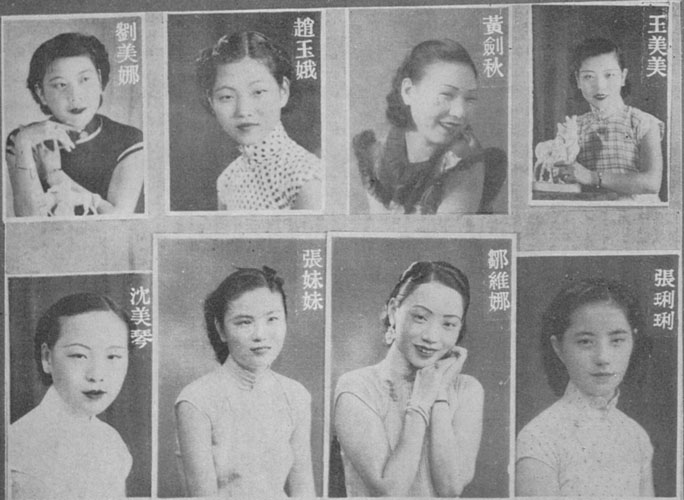Even though I finished researching the history of Shanghai's nightlife in the "golden age" of the 1920s-1930s years ago, I still enjoy doing follow-up research and occasionally come across a gem. Here's a letter to the editor of the North China Daily News, China's foremost English-Language newspaper from that age, describing the mechanization of the cabaret industry. Meanwhile, across the globe, the German sociologist Siegfried Kracauer was writing about the "mass ornament" of modern entertainment industry featuring song and dance acts like the Tiller Girls.
To the Editor of the “North-China Daily News”
Sir,—In years of travel through Europe, the Americas, North Africa, the South Seas and the Near East, I have never encountered such a standardized dullness of night-life as here in Shanghai. All the cabaret proprietors, managers, hostesses and entertainers seem to have joined a union in which originality, romance and gaiety are banned. Frankly, I have not been able to extract an ounce of fun out of this unionized form of labour in Shanghai. Think of the sameness of it, night after night. Each and every cabaret, regardless of its notoriety or prestige, whether a sailors’ dive or the swankiest of gilded palaces, is operated in precisely the same manner. All dance hostesses are garbed in the same unimaginative type of evening gown, with the same uniformity, the same immutability as a series of lamp-posts or fire-plugs. They look alike and act alike. They dance with you whether they want to or not. They drink with you whether they want to or not. Anything for a ticket, for a commission.
I don’t blame them: they have to live; but I do blame educated men for thinking that such factories of amusement can be relaxing or entertaining. Ever since I have been in Shanghai I have missed the diversity that characterizes night-life in other parts of the world. I have missed the heterogeneous kinds of cabarets that blend with different moods, the variegated types of women to be met, the possibilities of romantic conquest, and the intellectual pleasure of masculine brain versus golddigging on a non-ticket, but nevertheless generous basis.
I love to study the women about me, varied types, dressed in different styles—some may be musicians, writers, painters, short-hand typists, gold-diggers, sportive wives, harlots, students or what have you. One never knows. They are a psychological study, a game to be enjoyed. But in Shanghai, ,you know: they are just dance hostesses looking for tickets. There is not even the thrill of conquest, the chagrin of defeat. Flirtation and other by-products of romance are non-existent. Relaxation for the business man is impossible because the Shanghai hostesses cannot unbend from their attempts at false dignity and statuesque charm.
All this, incidentally, is only one side of the question. Think of the hundreds of girls and women in Shanghai who like to go to cabarets and dance halls, but who dare not because of this unionized system of nocturnal work. I know plenty of charming girls—some are tourists passing through Shanghai and others are employed in good positions here —who want to slip out some night and "play about" like men. Instead, they have to sit around and wait for some man to invite them out to a cinema or a bridge game at some club. What would they do in New York or any metropolis of Europe? They would just go and enjoy themselves. And if some old fossil didn’t like it, well, that would be just too bad.
But then, one can hardly expect even a hungry heart to break through the conventional barriers of provincial-minded Shanghai, where outward respectability, beneath which nobody knows what kind of evil festers, is more important than the pleasures that make life worth living for normal, full-blooded people.
----Cosmopolite.
Shanghai, June 26. (North China Herald, July 4 1934, p. 27)
